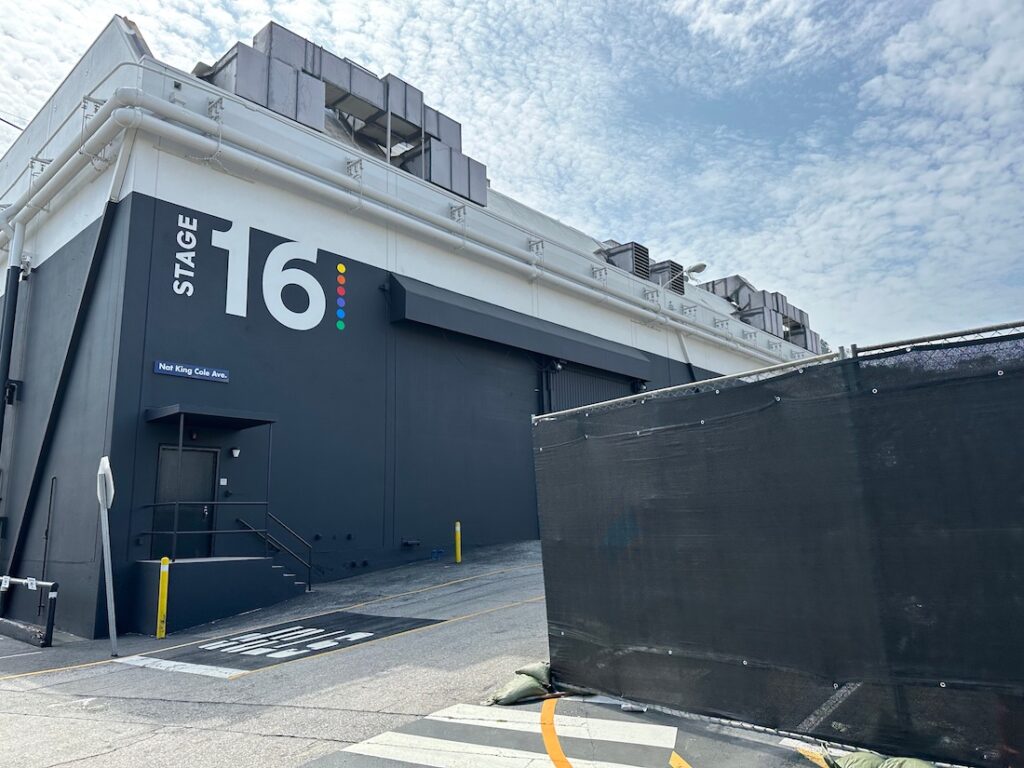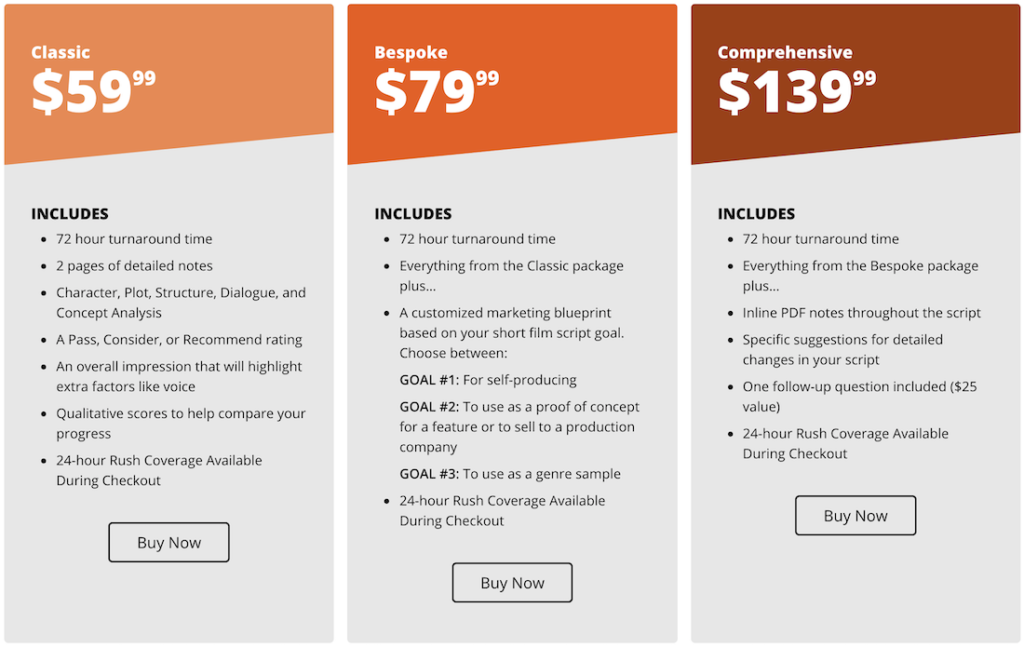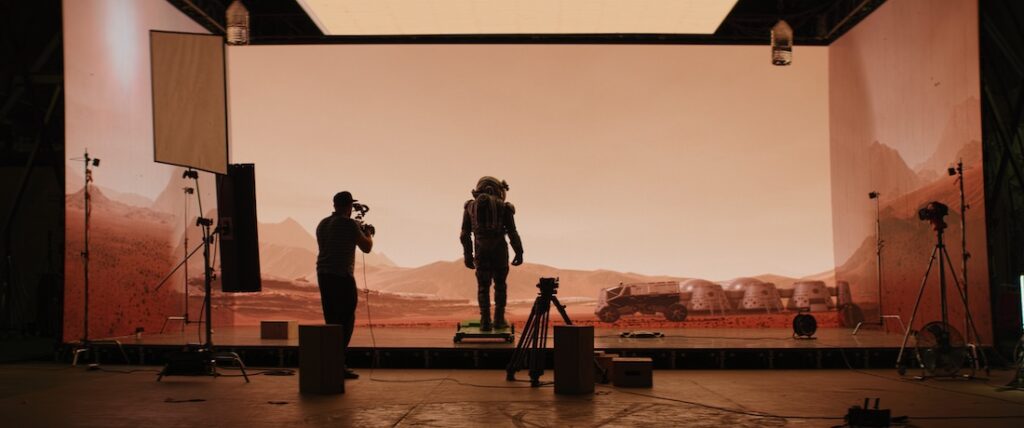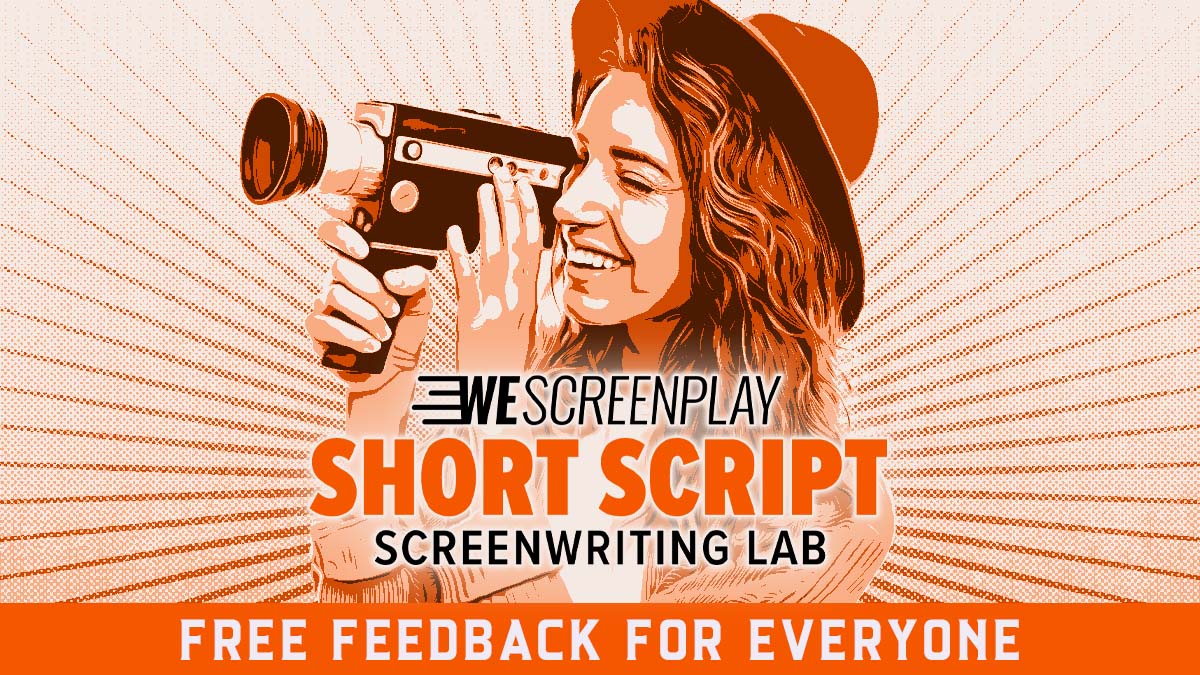
Script coverage is the analysis of a screenplay. It can include summaries, character breakdowns, thematic reviews, plot dissections and structure critique. Script coverage is performed by a professional reader to either provide a screenwriter feedback on their script or for buyers to determine the potential for success of the final feature film or television series.
As uncomfortable as it can be at times to receive feedback on your work, it is ingrained in the process of getting scripts produced and it would benefit any writer to become familiar with the practice as early as possible.
Coverage is a crucial part of how managers, producers, literary agents and studio executives discover new scripts and increase their ability to manage a high volume of projects and relationships. Coverage is also a way for busy industry professionals to evaluate hundreds of screenplays in a short amount of time by providing decision-makers with a summary and analysis of a screenplay’s quality as well as how it fits within their specific mandate.
If you’re interested in screenplay development, production, or becoming a working screenwriter, you will need to write and/or read script coverage at some point. It’s important to know about the various kinds of coverage — from industry notes to competition feedback — and how each type of coverage is used in the film and entertainment industry.
Here’s everything you need to know about script coverage, including examples, coverage templates, prices, how script readers work, and even a few free script coverage options for writers on a budget.

Table of Contents
What is script coverage?
Script coverage is an analysis of a script from a professional reader, often with a logline, synopsis, and a Pass/Consider/Recommend rating. Script coverage also typically includes comments on the strengths and weaknesses of the script. Comprehensive script coverage can even include notes within your screenplay and specific feedback about improving and clarifying your storytelling and character development.
Industry coverage is a major way that production companies, studios, agents, and managers filter screenplay submissions from thousands of writers to pass along to the higher-ups who may not have time to read every single script that comes their way. This is also an important part of the screening process for competitions. Coverage scores help narrow the field from thousands of submissions down to a manageable list of Semifinalists and Finalists for competition juries.
Screenwriting craft coverage can also be provided to a screenwriter to give them feedback on their script. Writers can pay for this coverage or receive it as part of a competition entry package. The coverage will let them know how their screenplay compares to other industry projects while also noting suggestions for improvement.
WeScreenplay, for example, will not only provide coverage that includes analysis of the plot, structure, characters, dialogue, and concept, but will rate each one before giving the overall project a final ranking.
WeScreenplay coverage comes in Packages or with every Contest entry.

What do execs expect when they do script coverage?
Script coverage is a kind of book report for a script. Most coverage from a professional reader or story analyst provides feedback and notes in these five main categories:
- Cover Page: This one-sheet provides general information about the project, including things like: title, writer(s) name(s), format, genre, setting/period, logline, tagline, comps, page count, draft #, attachments, commercial potential, target audience, whether the project will be well-received by the target audience, and where it could thrive (film, TV, digital, etc). It also includes the “Pass/Consider/Recommend.”
- Synopsis: A synopsis of the script, anywhere from 1/2 page to 3 pages.
- Comments: One to two pages of comments regarding strengths and weaknesses in categories like the story, structure, characters, dialogue, concept, formatting and others.
- Character Breakdowns: This is less common, but it’s still used in some agency story departments. Character breakdowns include a brief description of each character (usually limited to the top 6 characters).
- Final notes: Along with a rating, good coverage will either include overall thoughts or, in the case of paid coverage, suggestions for improvement.
Here’s what each rating means:
What a “Pass” rating means: Script coverage rating
This is the lowest script coverage rating. A “pass” rating means exactly that — the studio, agency, or competition is going to pass on this screenplay. The reader has evaluated a script and decided that it isn’t ready to pass along to the producers or execs.
Usually, scripts that receive a “Pass” have missed the mark in at least a few key areas like formatting, pacing, length, or other structural conventions. However, a studio, agency, or competition can also give a “Pass” rating to a perfectly acceptable script that simply doesn’t align with what they typically produce.

What a “Consider” rating means: Script coverage rating
A “Consider” rating means that the reader thinks a script is strong enough for the producer to “consider moving forward with.” A Consider rating can often signal that a script may not be production ready, but indicates that it’s close enough — or interesting enough — to merit a producer’s “consideration.”
If you receive a Consider rating, you’re off to a great start! Keep working on your character development, pacing, and story structure, and try to refine your submissions to relevant studios, agencies, and competitions to help you reach the highest script coverage tier — Recommend.
What a “Recommend” rating means: Script coverage rating
This is the strongest script coverage rating you can get. When a reader “Recommends” a script they are saying, “This script is extremely strong and very little development is necessary.” A Recommend means that a script is ready to be forwarded along and fits with the goals of a studio or agency.
Everyone uses script coverage to rate scripts. Understanding what the ratings mean can help you adjust your submission strategy.

How much does script coverage cost?
You can expect to pay around $60-80 for WeScreenplay Classic Notes depending on the script format, and up to several hundred dollars for more in-depth coverage with inline notes and comprehensive feedback from a professional reader.
Script coverage is still done “by hand” — a professional reader has to read your script and give accurate notes and feedback. That takes time, which they should be paid for, which is why it costs the screenwriter money. But getting an outside/fresh eye on your work — it’s worth it. And here at WeScreenplay, we’ve ensured that our prices stay lower and more accessible for writers. No one else offers such high-quality notes with a 72 hour turnaround at such a low price!
Invest in your career by working with time-tested readers who provide in-depth, actionable script coverage that can help you improve your screenplay.
Understanding different types of script coverage
- Studio coverage (aka “Industry” coverage)
- Competition coverage
- Paid coverage
- Agency/Management coverage
Coverage is a handy tool for executives and producers at every stage of the development process, but it’s especially useful when they have a multitude of projects moving forward. From development season to award season, in election years and over Spring Break, calls are being made, deals are being signed, and meetings are being rescheduled.
Having a one or two-page document that summarizes any hot new script is a lifesaver in those moments. But coverage can be used in a lot of other ways, too.

What is studio script coverage?
Every single day, studios, networks, streamers and production companies receive hundreds of screenplays for consideration and acquisition. In order to filter through them, script readers must read each script and provide coverage as well as a Pass/Consider/Recommend rating. If you want to land a general meeting or kick-start a development deal, your script needs to get a favorable score in studio coverage.
Studio coverage typically includes a no-nonsense synopsis or comments section that highlights what works, what doesn’t, and determines whether a script is going to be forwarded up the chain. This coverage is usually not written with the intention of helping the writer improve their script, but rather as an internal evaluation tool.

Some screenwriters even hone their craft as script readers for studios. What better way to learn how to write exciting plots, dynamic characters and intriguing concepts than by critiquing those aspects of other scripts? A reader often learns just as much from poor scripts as they do from exceptional scripts — not to mention, professional readers and analysts should be getting paid for their notes. For up and coming screenwriters, that’s a win-win.
How does competition coverage work?
Most screenwriting competitions feature a prestigious jury of industry professionals. These studio execs, writers, producers, and directors will help determine the winner of the competition — but not at the beginning of the process.
Even small screenwriting contests may receive thousands of entries from writers of all different experiences and ability levels. It takes many hundreds of hours to read and evaluate all of those submissions before the panel of judges ever gets to weigh in on the finalists and winners. This is where script coverage comes in.
Competition coverage is a filter that identifies promising screenplays for advancement to the quarterfinalists, semifinalists, and finalists. It’s a useful tool that can help find the best screenplays and eliminate scripts that don’t meet the formatting or quality requirements of the contest.

Competitions that offer coverage with the price of entry (or as an add-on) will typically provide you with a chance to address notes or even resubmit your script, which can be a great way to get your revised script in front of influential jurors at the finalist stage.
What is agency and management coverage?
Agencies and management companies, even small ones, are incredibly busy. If you’re submitting your script to a major agency like CAA, which reps actors, directors, novelists, musicians and screenwriters, you have to remember that they’re ridiculously busy servicing their current clients. That is a good thing — if you get a chance to be repped by them, you’d want them working hard for you!
As a result, even a great script can get lost in the chaos. Lower level reps, assistants and coordinators often read scripts and provide coverage, which then goes to upper level reps as a way to help them determine which writers they’d like to meet with. Script coverage can be your ticket through.
Like studio coverage, this coverage is often not intended to be seen by the writer; rather, it is usually an internal evaluation tool.
What is paid script coverage?
Some script coverage is intended for writers rather than development execs. This coverage goes far beyond synopsizing a script. It provides analysis, commentary, and feedback to help make your script stronger (and help you become a better writer!).
The most important part of paid coverage is the feedback. In fact, sometimes this won’t include aspects of traditional studio coverage (like the synopsis) because it’s not as valuable to writers. While it’s called coverage — think of it more as developmental notes.
There are a lot of different types of paid script coverage out there. Here are the three types of script coverage WeScreenplay offers:
WeScreenplay Script Coverage: 4 Types of Coverage in 3 Different Formats

At WeScreenplay, we believe that every writer has a unique voice that deserves to be heard. Our script coverage is about helping writers find and strengthen their writing so that their scripts are ready for the screen.
Writers can first choose which format their script is in. These options are:
From there, writers choose from three different coverage packages from our professional script readers. These packages are:
- First Look (starting at $39.99)
- Classic Notes (starting at $59.99)
- Bespoke Notes (starting at $79.99)
- Comprehensive Notes (starting at $139.99)
Here’s what you can expect from each type of coverage.

First Look:
First Look coverage includes:
- 4-day turnaround
- 1.5 pages of detailed notes
- A logline suggestion from your reader
- Designed to review your first draft
- Get a sense of what’s working in the early stages of your process
- Evaluated as a draft: no distracting Pass, Consider, Recommend rating
- 24-hour Rush coverage available during checkout
This coverage is ideal for writers who want to know if they’re on the right track with their first draft.
Download a Sample of First Look Coverage
Classic Script Coverage:
WeScreenplay Classic Notes includes all of the following:
- 2-4 pages of detailed notes (depending on script format)
- Character, Plot, Structure, Dialogue, and Concept Analysis
- A Pass, Consider, or Recommend rating
- An overall impression that will highlight extra factors like voice
- Qualitative scores to help compare your progress
- Your analyst’s bio (so you know who read your script)
- 72-hour turnaround time
For an additional fee, you can add a Synopsis to this coverage package or get a 24-hour turnaround!
This coverage is great for new writers and anyone who needs a little help finishing or improving their draft. If you’re submitting to a competition, studio or just want a fresh set of (professional) eyes to give you notes and analysis on your characters, plot, structure, and formatting, Classic Notes is a great place to start.
Download a sample of Classic Script Coverage

Bespoke Script Coverage:
Bespoke Notes includes everything from the Classic package plus a customized marketing blueprint to analyze how your script accomplishes your specific screenwriting goals.
The marketing blueprint is a 1-2 page section in addition to your feedback. What really sets this type of coverage apart from Classic Notes is that you can tailor your marketing blueprint to one of three silos to help your script be as effective as possible. During checkout, if you’ve selected one of these notes packages, you’ll be asked the following question: What is the closest reason or goal for writing this project?
You’ll be able to choose from one of four options as the primary goal for your script:
For Features:
- To use as a writing sample to find representation or submit to a competition/fellowship
- To self-produce
- To sell to a studio or producer
For Television:
- To use as a writing sample to find representation or submit to a competition/fellowship
- To sell to a studio, network, or producer
- To use as a spec of an existing show
For Shorts:
- To self-produce
- To use as a proof of concept for a feature or to sell to a production company
- To use as a genre sample
This detailed blueprint will help shine a light on the elements of your script — beyond the craft — to help push your project into green light territory for your target audience. Think of Bespoke Notes as an industry consultant who gives you niche-specific tips to enhance the reception of your screenplay to your desired audience.
For an additional fee, you can add a Synopsis to this coverage package or order rush turnaround.
Screenwriting is an art form and a craft — but it’s also a business. Bespoke Notes focuses on marketability analysis and selling recommendations so you can become a working screenwriter.
Comprehensive Script Coverage:
The Comprehensive Notes option includes everything from the Classic and Bespoke packages (including the marketing analysis), but it also includes something that very few script coverage packages provide:
Inline notes.
Download a sample of Inline notes coverage
The power of in-script notes
While the other two coverage offerings can help you discover problems by pointing out issues with a certain character or plot point, comprehensive coverage provides detailed advice about how to fix issues in the script. This isn’t a summary or analysis. This is a line-specific look at what works in your script, what doesn’t and how you can fix any issues that the reader may have noticed.
In-script notes also give readers room to provide lengthier responses about how to better market your script and any resources you can use.
But that’s not all. A lot of writers aren’t quite sure what to do with coverage notes. What’s the best way to address the issues and concerns in your script? With the Comprehensive Coverage package, you get the ability to ask follow-up questions to clarify any of the points or to propose your own ideas and see what the reader has to say. It’s a conversation with your reader instead of further scoring — which can lead to new and exciting revisions.

If you use competitions to get your name and writing out there, you’ll want the best competitive edge you can get to make sure your script stands out and is remembered by the judges. While the other coverage packages help you identify areas to improve your screenplay on your own, comprehensive coverage really helps guide you along the way to presenting the most polished script.
What’s the best free script coverage?
Honestly, “free” script coverage is rare because feedback on your script should always be given by a professional (aka “paid”) reader. Some screenwriting competitions include “free” script coverage with the price of entry — which is great, but it still comes with an upfront cost.
We offer a free First Impression of your script. See what a contest judge or industry gatekeeper thinks of the first page of your script. They’ll give you a few sentences of their thoughts within five days – 100% free!
If you don’t have the budget for paid script coverage or a screenwriting competition, here are some free alternatives to get free feedback on your script:
Find a writing partner
Working with a writing partner is one of the best (and cheapest) ways to get timely feedback on your script. Teaming up with another talented writer can also cultivate new ideas and fresh takes on your writing. An extra set of eyes goes a long way, especially when they’re free!
Enter a screenwriting competition
While it’s not exactly “free,” it’s worth pointing out that several screenwriting competitions include free script coverage with the price of entry. At WeScreenplay, we’re proud to say that every competition we run includes free script coverage!
Free Peer-to-Peer Script Notes: CoverflyX
CoverflyX is a free peer-to-peer platform where writers can get (and give) script feedback free of charge. This user-generated feedback isn’t always as reliable as professional script coverage, but the CoverflyX community is a lively and engaged group of passionate writers willing to share their experiences and insights with one another.
To get free script coverage, simply sign-up for a free Coverfly account, bid on a script using your tokens (you get more tokens when you provide feedback), and start reading! Script feedback needs to be delivered on time (usually within a week). Once you build up a few reviews, you’ll get a better understanding of the script coverage process from the reader side — which is immensely valuable for your future scripts.
Ask a friend
This is perhaps the oldest form of script feedback, and while it’s probably not going to come from a professional writer, that’s actually fine. Script coverage is designed to address industry needs and concerns, but feedback and input from the average reader or movie lover is always helpful.
Choose your script reading friends wisely though, as it’s always tricky inviting friends and loved ones into the creative critical process.
Networking
One of the best ways to get your script read for free is to ask another screenwriter to do it. Join screenwriting guilds, forums, and online groups, and reach out to trusted screenwriters to ask if they’re available to give you notes. There’s nothing wrong with asking, and chances are, you may strike up a beneficial relationship with a potential collaborator. If you’re lucky and you sell your project, you’ll get notes from producers and development execs!
It’s important to note that you should consider registering your script with the WGA before you submit your script to other people for notes. It’s not a requirement, but registering your script can give you some peace of mind.
Get a free first impression of your script via WeScreenplay here
How to use script feedback and notes
Script coverage is about more than just a Pass or Recommend rating. It’s about making your script as good as it can be! It’s essential that you read and respond to notes and feedback in a way that will improve your script without compromising your voice.
You’re not a “terrible writer” because you received a lot of notes. You want notes. Notes help you make the script better. And remember, notes are just that — notes. Don’t be afraid to make big changes, but don’t hesitate to stick to your guns, either. Script readers are professionals, but at the end of the day you need to tell the story you want to tell.
The best way to approach script feedback is with an open mind. Don’t argue over every point. If you think you are 100% right, fight the good fight, but don’t exhaust the producers. If you are a team player and easy to work with, you will get hired more often and sell more scripts. Remember that most pitches and meetings aren’t just an assessment of the quality of your script, they’re also a sneak peek into how easy you will be to work with.
No one is trying to ruin your story — they’re just pointing out moments of confusion or where elements can be strengthened. So, embrace the notes with an open mind and a spirit of collaboration — and happy re-writing!
Who are script readers?
Script coverage is provided by trained professional readers. Every script reader that works for WeScreenplay has a minimum of one year of industry experience, but many of our readers have much more.
For more information about who reads your scripts, here’s a deep dive into how a script reader writes coverage. You can also find out what one script reader learned from completing 1,000 script coverages!
The importance of script coverage
Whether it’s used by writers as a way of getting direction for revised drafts of their screenplay or by agencies and studios needing to determine which projects or writers to consider moving forward with, coverage is an essential cog in the entertainment industry machine.
Paid coverage is often intended to be writer-facing as a way to help writers improve their individual script and/or screenwriting skills in general — a practice that helps many writers grow and prepare to work professionally.
Many companies also have internal coverage that is often never seen by the screenwriter themselves but is a way that decision makers can review large volumes of scripts in a succinct and timely manner. Whether you’re working as a screenwriter, agent, manager, assistant, or producer, script coverage is a fundamental part of your work.
Script Coverage FAQs
What is script coverage?
Script coverage is an analysis of a script from a professional reader, often with a logline, synopsis and a Pass/Consider/Recommend rating. Script coverage also typically includes comments on the strengths and weaknesses of the script.
Who is script coverage for?
Script feedback is for everyone, from professional screenwriters to network executives to literary reps to writers just starting out.
How much does script coverage cost?
Script coverage can range from about $50 on the low end to many hundreds of dollars on the high end.
What does script coverage include?
Script coverage can vary, but often includes a synopsis of the script, a Pass, Consider or Recommend rating and notes on strengths and weaknesses.
How many rounds of feedback are included in script coverage?
Most script coverage includes one round of scores, a rating and feedback. You can pay for additional coverage, but that typically involves a script coverage package.
Who provides script coverage?
Script coverage is provided by trained, professional readers. For example, every reader that works for WeScreenplay has a minimum of 1 year of industry experience, but many of our readers have much more.
Click here to view WeScreenplay’s industry-leading script coverage services.


















